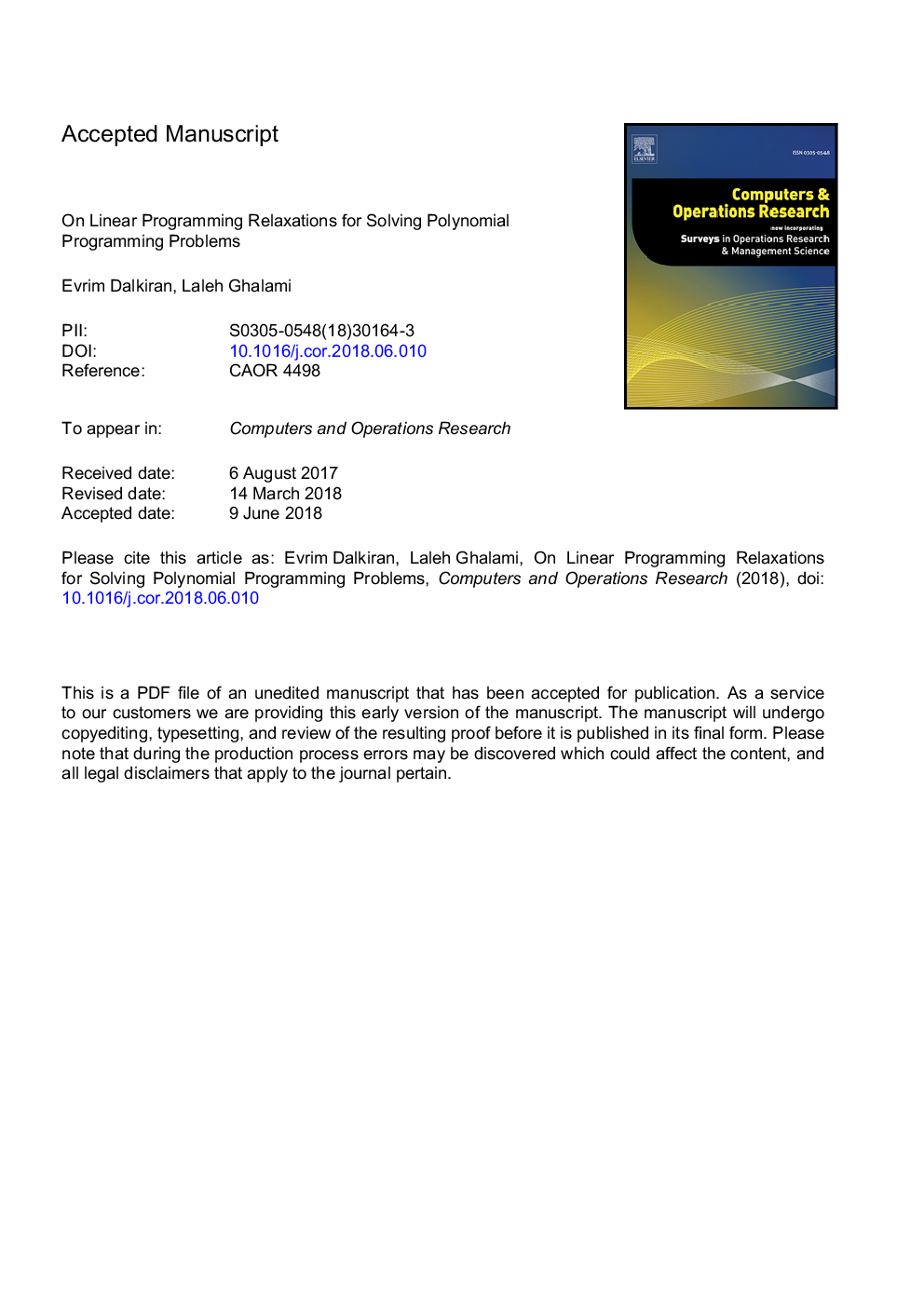| Article ID | Journal | Published Year | Pages | File Type |
|---|---|---|---|---|
| 6892502 | Computers & Operations Research | 2018 | 29 Pages |
Abstract
This paper studies linear programming (LP) relaxations for solving polynomial programming problems. A polynomial programming problem can be equivalently formulated as a quadratically constrained quadratic program (QCQP) by introducing new variables that represent nonlinear monomials and substituting them within the original formulation. Whereas Reformulation-Linearization Technique (RLT)-based LP relaxations constructed for the original formulation are tight, the relaxations generated using the equivalent lower degree formulations are smaller and require less computational effort to optimize in comparison to the effort the former requires. In this study, we analyze the strength and tractability of the standard RLT, the J-set, and recursive McCormick relaxations for polynomial programming problems, and identify the superior relaxation depending on the problem characteristics. Extensive computational results are provided to demonstrate the relative effectiveness of the standard RLT, J-set, and recursive McCormick algorithms using problems from the literature and randomly generated test instances.
Keywords
Related Topics
Physical Sciences and Engineering
Computer Science
Computer Science (General)
Authors
Evrim Dalkiran, Laleh Ghalami,
